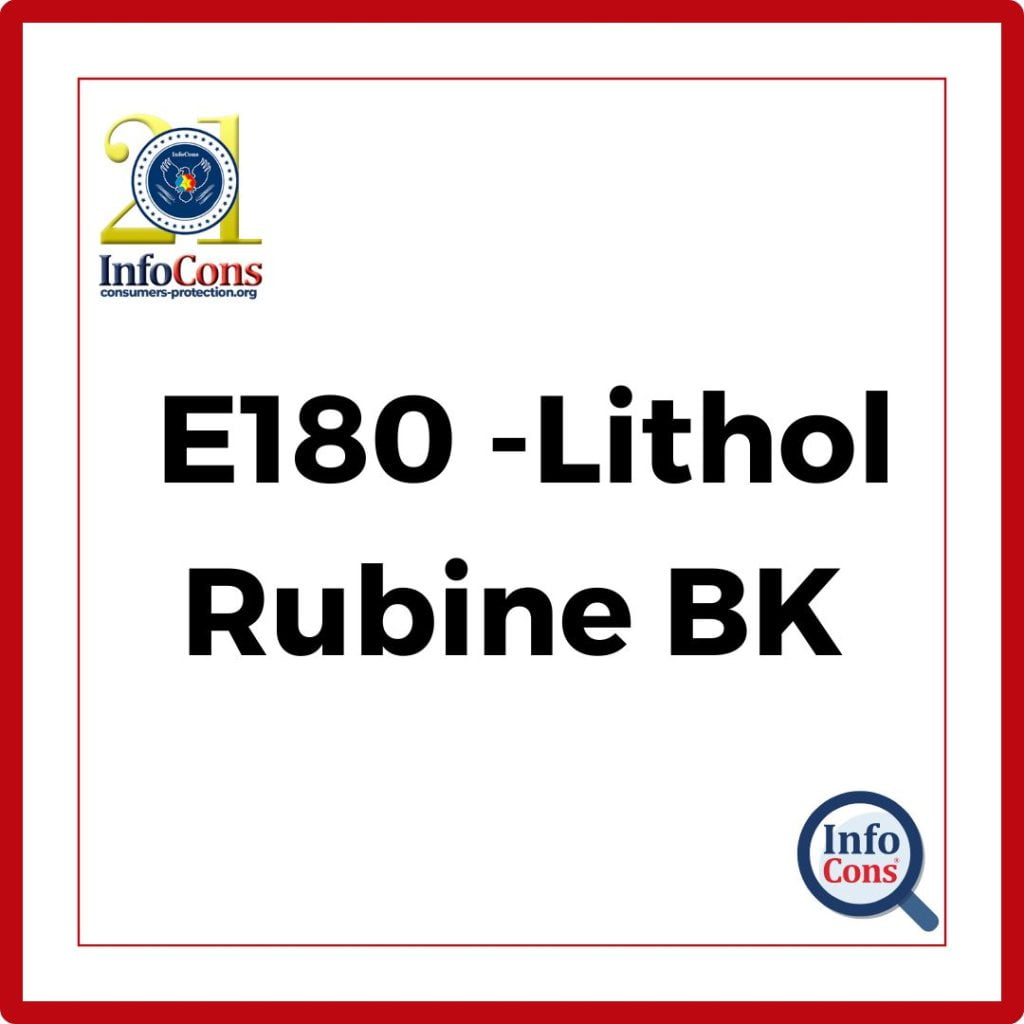What is the food additive E180 ?
E180, also known by its chemical name Lithol Rubine BK, is a synthetic azo dye. It is characterized by its vibrant, intense red color, making it a popular choice for various products. However, like many food additives, the use of E180 is accompanied by debates and concerns regarding its safety, health implications, and environmental impact.
The chemical formula for E180 is C18H12N2O6S2Ca. It contains aluminum and calcium ions and is used exclusively for surface coloring of certain types of cheese. It is generally not ingested.
Consumer Protection Tips : Why is it important to have the European Health Insurance Card ?
What is the recommended daily dose ?
The daily dose regulated by the European Food Safety Authority (EFSA) for human consumption is up to 1.5 mg/kg body weight.
E180 is approved for use in certain regions, including the European Union, where it is listed as a permitted food additive. However, it is not approved for use in the United States, where regulatory standards differ.
In which products can the food additive E180 be found? InfoCons Consumer Protection informs you?
E 180 is widely used in the food industry to impart a red color to a variety of products:
- Confectionery products: Used in candies, jellies, and sweets to enhance visual appeal.
- Dairy products: Added to certain cheeses and milk desserts to give them a rich red color.
- Meat products: Used in processed meats, such as sausages, to make them look more appetizing.
Cosmetic products: In the cosmetic industry, E180 is used in products such as lipsticks, blushes, and nail polishes. Its vibrant color makes it a preferred choice for this industry.
Pharmaceutical products: E180 is also used in the pharmaceutical industry as a colorant for pills and syrups, helping with product identification and making them more appealing to consumers.
Textiles and printing: Beyond food and cosmetic products, E180 is used in the textile industry for dyeing fabrics and in the printing industry for inks, due to its strong coloring and stability.
Read also – E174 Silver. InfoCons Consumer Protection tells you which food products contain this food additive .
Contraindications and risks :
The safety of E180, like many synthetic dyes, has been the subject of extensive research and debate. Several health implications have been identified:
- Allergic reactions: Some people may experience allergic reactions to E180, which can manifest as skin rashes, itching, or respiratory problems.
- Hyperactivity in children: There is ongoing research into the potential link between synthetic dyes, including E180, and hyperactivity in children. While some studies suggest a connection, the evidence is inconclusive, and further research is needed.
- Carcinogenic concerns: As an azo dye, E180 has been examined for its potential carcinogenic effects. It is generally considered safe for use within the specified limits set by regulatory agencies.
Read also – E 170 – Calcium Carbonate . InfoCons Consumer Protection informs you in which food products this food additive can be found .
In conclusion, E180, or litholrubine, is a widely used synthetic red dye that plays a significant role in the food, cosmetic, and textile industries. While it provides vibrant colors, its use is accompanied by health and environmental concerns that should be considered. As consumers become more aware of health and environmental issues, the demand for natural and safer alternatives is likely to increase. Efforts are being made to develop more sustainable production methods and to minimize the ecological footprint of synthetic dyes. This includes better waste management practices and the development of biodegradable dyes.
Download the InfoCons app !
Look for products that have a cleaner label or use natural additives. By installing Consumer Protection InfoCons App and scanning the barcodes of food products, you can find out the number and type of food additives they contain.
Author – Cosmina Nițu
Master in Nutrition – Infant and new born nutrition
Sources:
https://www.efsa.europa.eu/en/ – European Food Safety Authority (EFSA)
InfoCons – European Organization for Consumers Protection and Promotion of Programs and Strategies , a full member of the World Organization Consumers International, founding member of the Federation of Consumer Associations, and member of ANEC.
